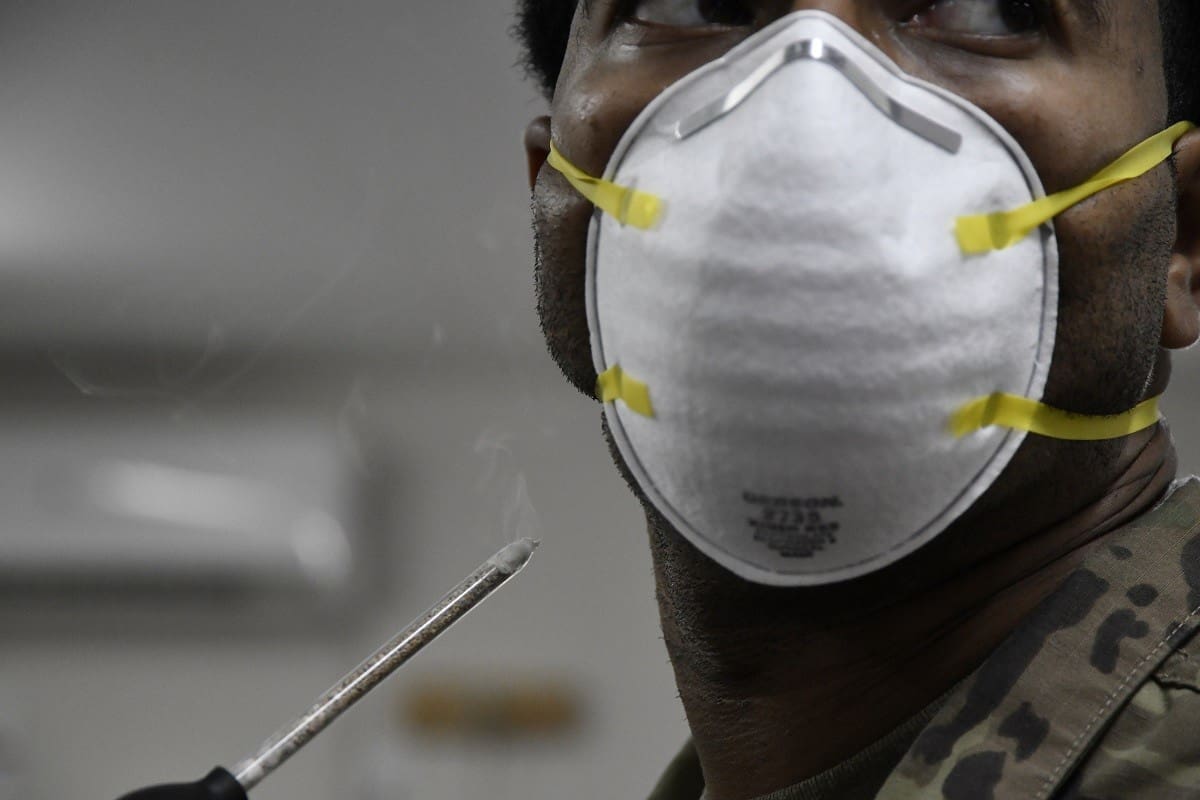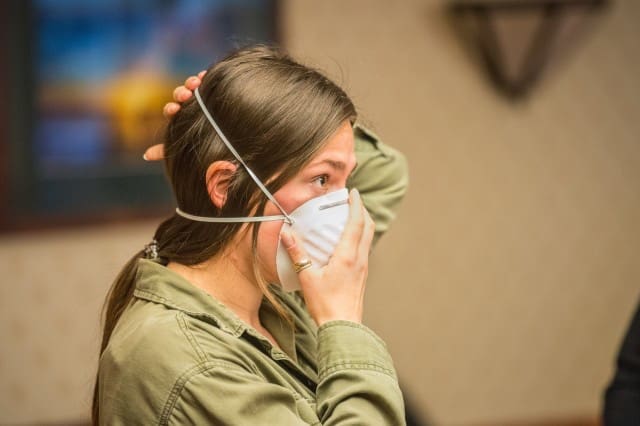WASHINGTON — Thanks to work by the Defense Department’s COVID-19 Joint Acquisition Task Force, U.S. industry is expected to greatly increase the production of N95 masks next year, the task force’s director said.

During a House Armed Services Committee hearing yesterday, Stacy Cummings told lawmakers that nationally, the U.S. was consuming about 50 million N95 masks each year. During the COVID-19 crisis, demand for masks increased substantially to about 140 million during a 90-day peak-use period.
DOD investments to help domestic industry ramp up production of those masks and other equipment will help ensure that in the future the U.S. will better be able to meet demand for personal protective equipment with domestic production, she said.
Based on the investments made by the department, Cummings told the House panel, an increase in production of 450 million masks a year will be attained by October, with a rate of more than 800 million masks per year by January.
“Starting in 2021, we anticipate our total domestic production to be in excess of a billion per year,” Cummings said.
Ellen Lord, the undersecretary of defense for acquisition and sustainment, told lawmakers that increasing domestic production capabilities has been a focus of the department.
“In order to decrease our dependence on foreign suppliers for medical resources, DOD has focused on increasing domestic industrial capacity and capabilities,” she said. “To that end, we executed some $284 million in industrial expansion efforts during the first two weeks of May 2020. Reconstituting domestic production or creating new production that shifted offshore years ago often requires capital expenditure, capital equipment expenditures, retooling and retraining of the workforce.”

Lord also said DOD has been focused on maintaining the health of the defense industrial base during the COVID-19 pandemic. The DIB includes a wide array of businesses that produce weapons, equipment and supplies for the U.S. military.
During the COVID-19 pandemic, businesses that make up the DIB suffered as other U.S. businesses did, Lord said. Should some of those businesses fail as a result of COVID-19-related disruptions, it might result in the department not being able to procure important defense-related supplies, equipment or weapons, she added.
Lord said the department is using $688 million of CARES Act funding to address impacts to the DIB by directly offsetting financial distress and providing investments to regions most severely affected.
She also said that increased communication between the department and the DIB were key in allowing defense officials to better understand where the industry was hurting most, and where the need existed most. When first she stepped into the A&S leadership role in 2017, she said, she set up quarterly meetings with DIB representatives to better assess their needs. The COVID-19 pandemic accelerated that communication.
“When the pandemic hit and we saw how catastrophic it could be to our defense industrial base, what we did was just really amped up those engagements,” she said. “So starting on March 17, we had our first [teleconference] with industry, and we broadened beyond just the three industry associations that we worked with, to really start including nontraditionals and others.”
The number of industry representatives involved in those meetings also increased, Lord said, “For multiple weeks, we had calls three times a week. One of those calls per week was focused on small business, and we listened to what the problems were,” she said. “As a result of that, … a lot of the leadership of A&S listened to what the issues were, and we tried to start taking the first small steps.”
Lord said as a result of that communication, the department worked to simplify how to do business with the military, including raising the threshold for micropurchases and increasing the progress payment rate from 80% to 90% for large businesses, and from 90% to 95% for small businesses.
“This change will infuse an estimated $3 billion in cash to all levels of the DIB,” Lord said. “Further, the department has partnered with the major primes to ensure this increase in cash makes its way throughout the supply chain.”
By C. Todd Lopez, Defense.gov

